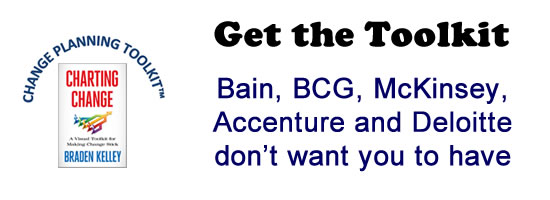The Biggest Economic Shift of the Next 100 Years Is Already Under Way

The greatest innovations often elude us cloaked in obtuse jargon that masks their impact. Here’s one you don’t want to miss.
It never fails that the greatest innovations often come wrapped in obscurity and misunderstanding. I can imagine a scene in which the first wheel was met with head scratching, confusion, and comments along the lines of, “Yeah, but it’s going to keep rolling away on us! Square wheels are so much more predictable.”
“…we not only fail to accept how much remains to be discovered and created but more importantly we believe that we are so smart that if there was more we’d have already figured it out.”
The simple fact is that the future unveils itself in ways we can never predict or fully comprehend until we look back on it and think to ourselves, “How did we miss that?”
From the first radio to the first television to the first email we consistently underestimate the impact of innovation because of plain old arrogance; we not only fail to accept how much remains to be discovered and created but more importantly we believe that we are so smart that if there was more we’d have already figured it out.
So, I’d like to give you a does of humility. Try to take a moment to accept it before you discount it. Trust me, it won’t be easy.
The Building Blocks of Progress
One of the economic cornerstones of modern society, free markets, and capitalism is the inalienable right of the individual to the ownership of property. We take that so much for granted in the developed world that we rarely if ever think of what life would be like without it. However, travel to parts of the world were property ownership is a distant dream, or where it can be usurped by government, military coups, or rogue factions of society and you realize how important it is as a cornerstone of economic stability and prosperity. I’m not speaking in the abstract here. I lived through a coup d’etat and martial law. Nothing creates a deeper sense of respect and reverence for the critical importance of property rights than having them taken away overnight.
Why am I sharing this in the context of innovation? Stick with me. This one innovation I’m about to talk about will change the world and everything we hold sacred about ownership in ways we can barely begin to imagine.
The Peruvian economist Hernando DeSoto wrote extensively on property rights, claiming that they are one of the most fundamental requirements for economic growth and prosperity. However, I would extend DeSoto’s premise to the innovation economy and I’d modify it to apply to not only the ownership of tangible property but also to the shared ownership of ideas. If we expect to foster open and collaborative innovation we need to change the very nature of the way we think about ownership, especially in a world where ideas, intellectual property, capital, and goods flow so freely.
Peeling Away The Jargon
Ok, enough skirting around, the innovation I’m talking about is the Blockchain. Oh, wait, you just tuned out, right? Not so fast. This is exactly the reaction I was talking about at the outset of the article. You’re already discounting the impact of blockchain because it’s too obtuse, convoluted, and just a technological mystery. After all, if Blockchain was important it would be easy to understand its value.
So, allow me to peel away the techno-speak and get down to the single most important impact that it will have.
Blockchain is not just about bitcoin and digital currency. That’s the least of it. What blockchain does, without getting into the guts and gore of distributed ledgers and mining and the rest of the jargon that obfuscates it, is to provide a definitive and indestructible record of the stake you have in something. It’s an indisputable and unalienable right that will be available to anyone who has access to the Internet.
By the way, notice that I said stake and not ownership. Blockchain radically alters our very notion of ownership by shifting the focus from hiding, hoarding and protecting ideas to exposing, sharing, and distributing them. By doing this it democratizes economic value flow at the most granular level. If you have a stake in one thousand value creating entities you then have a potential revenue flow from each one. Your employer becomes the blockchain! I warned you that this was radical stuff.
But the tell-tales of this shift have been there for some time. Consider that during the first 50 years of the 20th Century 90% of all Nobel prizes in the physical sciences were awarded to individuals. In the second half of the last Century the Nobels were nearly equally awarded to teams and individuals. Further evidence; my company, Delphi Group, conducted a study of 600 individuals in which 20% of respondents indicated that patents no longer served any useful purpose. 74% indicated that the current patent system needed a radical overhaul. There’s clearly a trend here towards collaboration rather than ownership, transparency over protectionism.
Still with me? Good, because it gets much more interesting.
When you have a stake in something it becomes an asset and you want to protect it, grow it, and leverage it. Think for a minute about what the greatest assets of our time are–knowledge, information, ideas; these are the gold rush of the 21st Century. And all of these flourish in a climate of collaboration rather than one of ownership. In many ways you could even say that ownership is now stifling innovation. (The Economist ran a great article on this subject in 2015.) The sad reality is that when companies spend more money on protecting intellectual property than on R&D something is clearly not right.
Blockchain will do for the 21st Century economy what Patent Law did for the 20th Century but at a level of granularity and precision that will allow every human who contributes to a good idea to protect their stake in it, while also allowing these ideas to build on each other at a rate and scale unimaginable in the past.
Hard to comprehend, right? What radical change isn’t?
A Wildly Distributed Future
Let me make it easier to follow. Let’s take Uber as an example. Today Uber relies on owners of cars to provide ride sharing to clients who want rides. What makes this model really cool is that there are lots of car owners who have cars that are not being used 24/7 and time to offer rides. It’s a great way to leverage latent assets and people. But now let’s move to driverless cars.
When most people try to adapt the Uber model to a driverless car the natural inclination is to imagine Uber buying fleets of robotic cars. But that just perpetuates the old ownership model. What if instead driverless cars were autonomous entities in which many people had a stake? The car actually exists as an independent entity, not unlike a public corporation, which has many owners. The blockchain makes that possible by allowing this sort of collaborative model of shared ownership to exist with complete trust. In fact the car could ultimately take care of its own maintenance and you could move your stake from car to car based on which ones perform best. Think of this sort of like the stock market in a wildly distributed fashion but without the need for the banks and brokerage houses that are needed to ensure trust in the current model of a marketplace.
You’re starting to see just how foundationally radical and disruptive blockchain is!
Unchained From The Past
So here’s my suggestion to you. Do not discount the potential of blockchain by thinking of it as just a technology. Don’t confine it to just bitcoin and cyber currency. Study blockchain as though the future of innovation depended on it. Try to work through the techno-speak and the obfuscation of the pundits. Let go of the arrogance of thinking there isn’t a better way. Simply put, this is the stuff that social and economic revolutions are made of.
The bottom line is that the more you understand about blockchain and its impact the more likely you will be to benefit and profit from this revolution in how we will think, innovate, and create the global economy of the next one hundred years; a century that will make the economy of the last one hundred years look as though it was running on square wheels.
This article was originally published on Inc.
Wait! Before you go…
Choose how you want the latest innovation content delivered to you:
- Daily — RSS Feed — Email — Twitter — Facebook — Linkedin Today
- Weekly — Email Newsletter — Free Magazine — Linkedin Group
 Tom Koulopoulos is the author of 10 books and founder of the Delphi Group, a 25-year-old Boston-based think tank and a past Inc. 500 company that focuses on innovation and the future of business. He tweets from @tkspeaks.
Tom Koulopoulos is the author of 10 books and founder of the Delphi Group, a 25-year-old Boston-based think tank and a past Inc. 500 company that focuses on innovation and the future of business. He tweets from @tkspeaks.
NEVER MISS ANOTHER NEWSLETTER!
LATEST BLOGS
How Brexit Has Affected UK E-commerce Businesses
Photo by Zyro on Unsplash The popularity of online shopping was already growing at an impressive rate – and…
Read MoreOvercoming range anxiety: three tips for EV owners
Photo by Jenny Ueberberg on Unsplash In the last few years, electric vehicles (EVs) have become more and more…
Read More


